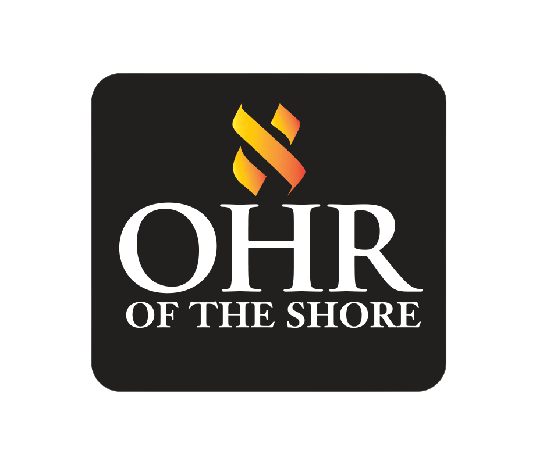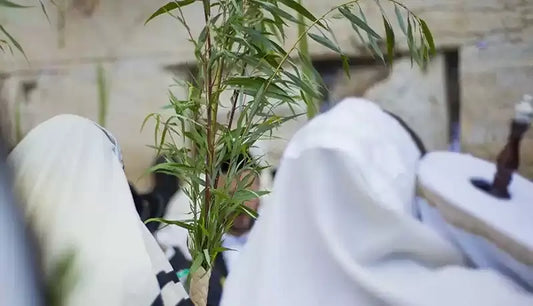Published 5782-2021
By:
Rabbi Hayim Asher Arking
Rabbi Ezra Ghodsi
Before entering the sukkah, one should have in mind that Hashem commanded us to sit in the sukkah to remember that he surrounded our ancestors with the Clouds of Glory when they left Mitzrayim. Throughout Sukkot, one should view the sukkah as his house. Therefore, eating, drinking, sleeping, relaxing, etc. should all be done in the sukkah. While one fulfills a mitzvah every time any of these activities are performed in the sukkah, only the activities of eating, drinking, and sleeping are mandatory to take place in the sukkah.
WHAT FOODS ARE REQUIRED TO BE EATEN IN THE SUKKAH?
It is praiseworthy that all foods and drinks, even water, be consumed in the succah. Foods from wheat, oats, barley, spelt, and rye grains are of the obligation to eat in the Sukkah. This is even if they are mezonot when one is eating more than a k’betsah - approximately two oz. – the volume of half an average pita bread - worth of bread or any other mezonot food - except for rice - must be eaten in the succah. Other foods may be eaten outside of the sukkah. If one started eating a bread meal (of at least a k’betsah), he may not eat or drink even the slightest amount of food or drink outside of the sukkah during his meal. Even food that was already put in one’s mouth, should be swallowed in the sukkah before exiting.
HOW MUCH DO I HAVE TO EAT TO BE ABLE TO RECITE THE BERACHA OF LE’SHEV BA’SUKKAH?
The beracha is only recited when eating at least a k’beitzah of bread or 3 k’beitzim of mezonot foods, excluding rice.
WHEN SHOULD I RECITE THE BERACHA OF LE’SHEV BA’SUKKAH?
On Shabbat and Yom Tov, the leshev basukkah is recited when reciting Kiddush of the bread meal. This is because, although we recite the beracha in conjunction with bread, since the beginning of this bread meal is with the kiddush said in the location of the meal, we recite leshev by kiddush. Other times, when eating a bread meal it would be recited with the beracha of hamotzi.
I FORGOT TO RECITE THE BERACHA BEFORE I STARTED EATING; CAN I RECITE THE BERACHA IN THE MIDDLE OF THE MEAL?
As long as one is still eating, even if he is eating dessert or drinking, he may recite the leshev basukkah. However, if he is not eating or drinking anymore or has already recited Birkat Hammazon, he can no longer recite the beracha.
CAN I PRAY EARLY ON THE FIRST TWO NIGHTS OF SUKKOT?
On the first two nights of Sukkot, there is a requirement to eat bread in the sukkah. This is derived from Pesah; Just like on Pesah night, there is a mitzvah to eat matsah, so too on Sukkot, there is a mitsvah to eat bread in the sukkah. Since this mitsvah is a Biblical one, it cannot be fulfilled until after Tset Hakochavim. Similar to Erev Pesach, one should not eat bread or mezonot foods after the 10th hour of the day (around 4:30 pm).
HOW MUCH BREAD DO I NEED TO EAT ON THE FIRST TWO NIGHTS OF SUKKOT?
One should eat at least a k’zayit of bread, within a time frame of four to five minutes. Throughout the seven days of Sukkot, a k’zayit is not required to be eaten in the sukkah, nor is the beracha recited when only eating a k’zayit. On the first two nights, however, a k’zayit must be consumed in the sukkah, and the beracha is recited. According to some opinions, in order to fulfill the mitzvah of eating bread on the first two nights, a little bit more than a k’beitzah of bread should be eaten.
I FORGOT YAALEH V’YAVO IN BIRKAT HAMMAZON, DO I HAVE TO REPEAT?
On the first and second nights of Sukkot, since there is an obligation to eat bread, if one forgot ya’aleh v’yavo, Birkat Hammazon must be repeated. During the daytime and the rest of the holiday, one does not need to repeat. However, if it was raining on the first or second night and one ate inside, Birkat Hammazon is not repeated. In all cases, women do not repeat Birkat Hammazon if they forgot ya’aleh v’yavo.
WHAT SHOULD I DO IF IT’S RAINING ON THE FIRST NIGHT OF SUKKOT?
Preferably, one should wait a little bit to see if the rain stops. If not, one may eat inside. However, if the rain stops before he went to sleep, then he would be required to eat at least an ounce (k’zayit), and preferably a k’beitzah in the sukkah. If one did not eat in the sukkah the first night of Sukkot, a Sheheianu is not recited the following day, even though one is eating in the sukkah for the first time.
WHAT IF I FORGOT TO RECITE SHEHEIANU ON THE FIRST NIGHT?
The next morning when he makes a beracha on his lulav and etrog, he should have in mind that the beracha should also go on his sukkah.
WHAT IF I FEEL A LIGHT DRIZZLE?
One should assess the amount of rain falling in his sukkah. If that amount of rain were falling in his house, would he relocate elsewhere? If he would, then at that point, he is exempt from the sukkah. If one is starting to eat, and there is only a slight amount of rain, although he is required to sit in the sukkah, the beracha is not recited. However, in regard to sleeping, even a small amount of rain would absolve one of the requirement to sleep in the sukkah.
WHAT IF IT’S CURRENTLY NOT RAINING, BUT WATER IS STILL DRIPPING INTO THE SUKKAH?
If the amount of water dripping in would be enough to move elsewhere, one is not required to sit in the sukkah. Conversely, if one has thick schach and the rain is not entering his sukkah, he would still be obligated to eat in the sukkah.
I COVERED MY SUKKAH WITH AN AWNING WHEN IT STARTED RAINING, DO I HAVE TO REMOVE THE AWNING WHEN THE RAIN STOPS?
Even if one is in the middle of eating, he must get up and remove the awning. In a case where one continued eating in the sukkah under an awning, a new beracha is not recited after it stops raining.
WHAT DO I DO IF I ALREADY MOVED INSIDE AND THEN IT STOPPED RAINING?
If one already sat down to eat inside because of rain, he is not obligated to return to the sukkah. However, if one wishes to return to the sukkah anyway, a new beracha should be recited. Similarly, if one went to sleep indoors due to rain, he is not required to move back into the sukkah in the middle of the night.
CAN I TRAVEL TO A PLACE WHERE I WILL NOT HAVE A SUKKAH?
One who must travel to a different city for business on Sukkot, and has no sukkah available to him where he is staying, is exempt from the mitzvah of sukkah. However, one who is traveling for vacation or pleasure is still obligated to eat and sleep in the sukkah.
ARE CHILDREN REQUIRED TO SIT IN THE SUKKAH?
Boys from the age of five or six-years-old, depending on maturity, are required to sit in the sukkah. One may give a child that has reached this age, food that is required to be eaten in the sukkah, even if the child might not eat in the sukkah. However, one may not tell the child that he must eat inside. Furthermore, if the child’s father sees his son eating inside, he should tell him to eat in the sukkah.
WHAT IF MY SUKKAH IS FULL OF MOSQUITOS?
One who is experiencing discomfort from the sukkah, i.e., there is an excessive amount of flies or mosquitos, is exempt from sukkah. If it is cold outside, one should wear warm clothes and eat in the sukkah. He can also make a beracha if he is bundled up properly. Regarding sleeping, one should also sleep in the sukkah with warm blankets. If, however, he is afraid of getting sick, he may sleep inside.
Ohr Halacha Hotline
Call/Text: 732-359-3080
Press... to Reach:
1 - Sofer Center
2 - Shaatnez Checking
3 - Halacha Questions
4 - Brit Milah
5 - Organization for Marital Guidance
6 - JSOR & Related Questions
7 - Rabbi Arking
8 - Director of Ohr Halacha



